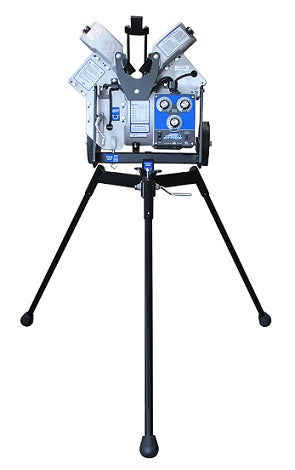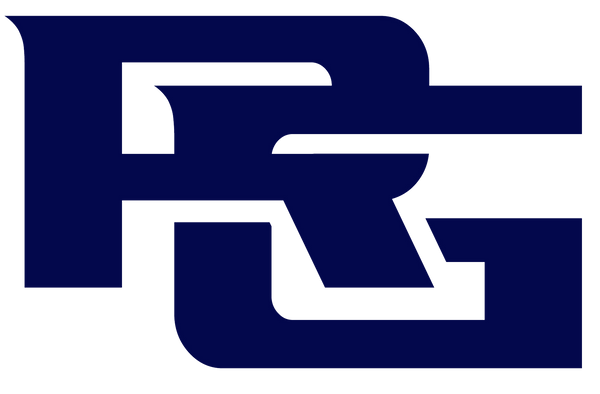
Top Pitching Machines for Every Skill Level
Share
One of the finest ways to teach baseball and softball players how to hit is to train with Baseball Pitching Machines. Using the correct pitching machine can help players of all skill levels. It doesn't matter if you're just starting to learn how to hit or if you're a collegiate player getting ready for fastballs that go 95 mph.
There are a lot of different sorts of gadgets. Some are simple and you can throw them by hand, while others are high-tech and you have to program them. It could be hard to choose the right one. But not every player requires a machine that is as good as a pro's. A 7-year-old who is just starting to learn the basics requires something completely different from a college athlete who is up against stiff competition.
Kids in Little League and professional sportsmen can all utilize this guidance to locate the greatest pitching machine. We'll speak about the pros and cons of different models and what you should consider before you buy one.
Why Pitching Machines Are Essential
Before we discuss age-specific tips, let's talk about why pitching machines are such fantastic ways to train:
- Consistency: Machines always throw strikes in the same spot, making them an essential part of baseball practice gear for improving mechanics.
- Pitch Variety: More advanced machines can throw fastballs, curveballs, sliders, and even knuckleballs.
- Repetition: Players can repeat swings hundreds of times in one session, making them perfect for Hitting Drills Baseball and faster improvement.
- Building Confidence: Younger players can learn without worrying about getting hurt by a stray pitch.
- Versatility: Many Baseball Pitching Machines can throw grounders, fly balls, and pop-ups, helping players improve both hitting and defense.
Pitching Machines for Young Beginners (Ages 5–8)
Speed isn't as crucial for kids who are just starting to play baseball as safety, simplicity, and fun.
Key Features to Look For
- Slow Best speed: 15 to 40 mph.
- Design for safety: use soft or foam balls, cover the wheels, and make sure the bases are solid.
- Easy to put together: Coaches and parents can do it fast, so they can focus on teaching.
- It's light and easy to carry, making it perfect for a Backyard Baseball Setup or practice at the local field.
Recommended Models
-
Louisville Slugger Blue Flame UPM45
- 18 to 45 mph
- Portable and doesn't need electricity
-
Good for both softballs and baseballs
-
JUGS Lite-Flite Machine
- Uses foam balls to keep people safe
- Speeds: 11 to 25 mph;
-
great for hand-eye coordination
-
Heater Sports BaseHit
- Small and cheap
- Speeds that can be changed up to 45 mph
- You can choose an automatic feeder.
Benefits for Beginners
- Helps with hand-eye coordination and boosts confidence at the plate
- Instead of being scary, it makes youth pitching practice fun and confidence-building.
Pitching Machines for Little League Players (Ages 9–12)
At this point, players are working on their mechanics and getting ready for faster pitches. They need a mechanism that makes things hard without making them too hard.
Key Features to Look For
- Speed: 30 to 60 mph
- Some adjustable pitch machines can throw fastballs, light curveballs, and sliders to keep players challenged.
- Durability: Strong enough for outdoor use every day
- Versatility: It should be able to be used for field drills
Recommended Models
-
Heater Sports Deuce 75
- Two wheels for curves and slides
- Speed: 30 to 75 mph.
-
This model is cheap and long-lasting, often highlighted in pitching machine reviews for its value and durability.
-
Louisville Slugger Blue Flame
- Already a hit with kids' leagues
-
Can also toss grounders and fly balls.
-
JUGS PS50
- Digital speed control that is easy for beginners
- 15 to 50 mph speeds
- Good for both baseball and softball
Benefits for Little League Players
- Gets batters ready for the speed of live games
- Helps you recognize pitches better and gives you more confidence when you bat.
Pitching Machines for Teenage Players (Ages 13–18)
Teen players, especially those in middle school, high school, and travel ball, have to deal with more advanced pitching. The machines for this group must be able to mimic the speed and diversity of pitches in a real game.
Key Features to Look For
- Faster Speeds: 40 to 90 miles per hour
- Different types of pitches: fastballs, curveballs, sliders, and changeups
- Programmable Settings: You may make sequences that make at-bats feel authentic.
- Portability: Good for schools and training centers
Recommended Models
-
Junior Hack Attack
- Three-wheel design for precision and realism
- Can throw many types of pitches and go up to 70 mph
-
JUGS BP1 or BP2
- Can be used for both batting and fielding drills
- Pitch angles that can be changed
-
Good for team practices
-
Heater Sports Deuce 95
- Up to 95 mph
- Comes with an automatic feeder
- Not as expensive as high-end models
Benefits for Teen Players
- Teen players get a lot out of it, especially when paired with Baseball Recovery Equipment to reduce fatigue and boost performance.
- Gets them ready for varsity and travel ball games, makes them faster and more confident when facing stronger pitchers
Pitching Machines for College & Adult Players
At this level, sportsmen require machines that can simulate real-life pitchers and are of professional quality. These machines cost more, but they come the closest to real-life games.
Key Features to Look For
- Speeds of More Than 90 mph
- Different types of pitches: curveballs, sliders, cutters, and knuckleballs
- Programmable Pitch Sequences: Copy how real pitchers throw
- Heavy-Duty Build: Can handle daily use in cages or fields
Recommended Models
-
Hack Attack Pitching Machine
- Speed up to 100 mph
- Three-wheel design for realistic pitching
- Also good for drills on the infield and outfield
-
ATEC M3X 2.0
- Up to 105 mph speeds, 3-wheel precision for professional-level training, and used by many college programs
-
JUGS BP3
- Speed range of 40 to 90 mph
- Different kinds of pitches
- Sequences that can be programmed for game simulations
Benefits for Advanced Players
- Improves sophisticated pitch recognition
- Teaches pitchers how to throw fastballs
- Gets hitters ready for college and professional pitching
The Best Softball Pitching Machines
Softball training needs pitching machines that are different from baseball machines because they need to be able to handle differing ball sizes, release locations, and pitch speeds. The greatest alternatives not only make the game feel real, but they also help players improve their response time, swing mechanics, and confidence at the plate.
Key Features to Look for in a Softball Pitching Machine
- Speed Range: Most fast-pitch machines can throw the ball between 25 and 70 mph. Slow-pitch machines focus on loft and arc.
- Ball Compatibility: Make sure the machine can handle both 11" and 12" softballs.
- Pitch Types: More advanced versions can throw fastballs, risers, drops, and changeups.
- Adjustability: Machines that let you vary the height and angle operate like different pitchers.
- Durability: Built to last and with wheels that last a long time for everyday use.
Top Recommended Softball Pitching Machines
A great softball pitching machine may change the way players practice by helping them improve their timing, swing mechanics, and ability to hit pitches that are like those in a real game. The right machine makes sure that you get the same number of reps every time and that you get better over time, from youth leagues to college-level events.
1. JUGS PS50 Softball Pitching Machine
- Speed range: 15 to 50 miles per hour
- It throws softballs that are 11" and 12" long.
- A cheap and portable entry-level model
- Perfect for youth and recreational leagues
- Lightweight (50 lbs), so coaches can easily move it around
Best for people who are just starting out and for community softball teams.
2. Hack Attack Softball Pitching Machine
- Speed: 45 to 75 mph
- The three-wheel design lets you throw fastballs, risers, drops, screwballs, and changeups.
- Used in colleges and travel ball, this machine is professional-grade.
- Quick changes to get the pitch in the right spot
- You can also use it for defensive drills like grounders and pop flies.
Best for players who want to compete in high school, college, or the pros.
3. JUGS Lite-Flite Softball Machine
- Uses soft foam balls to practice safely
- 15 to 45 mph speeds. Great for indoor training for young athletes.
- This model is great for learning how to swing safely, making it one of the best indoor baseball machines for young athletes.
Best for developing young people and keeping them safe indoors.
4. ATEC M3 Softball Pitching Machine
- Speed range: 30 to 105 mph (for elite-level training)
- Throws fastballs, risers, lowers, and changeups with realistic spin.
- Programmable pitch sequences for simulating games
- Built to last and tough enough for daily use
- A lot of college softball teams use it.
Best for advanced hitters getting ready for top-level competition.
5. Heater Sports Softball Pitching Machine
- Speed range: 15 to 60 mph
- Cheap and easy to carry
- Works with an automatic ball feeder for solo practice
- Great for practicing in the garden.
The best alternative for youth and intermediate players on a budget.
A Revolutionary Alternative: Virtual Reality Training
Training doesn't have to be physical all the time. Hitters can face simulated pitchers with a VR headset on platforms like WIN Reality.
- Goes from 40 to 100 mph with a broad range of pitches
- Instant feedback on how to swing
- Not as expensive as professional-grade computers
- You can train anywhere with a headset.
This isn't a replacement for live reps, but it's a great way for players who don't have access to a real pitching machine to have a game-like feel.
What to Consider Before Buying a Pitching Machine
No matter how good you are, remember these things:
- Price: Entry-level machines cost between $200 and $500, while professional units can cost more than $3,000.
- Portability: Some devices are light, while others need their place.
- Durability: Machines with metal frames last longer than those with plastic frames.
- Wheels, motors, and feeds may need to be cleaned and repaired.
- Multi-Sport Use: Some machines can be used for both baseball and softball.
Final Thoughts
A good Baseball Pitching machine setup is one of the best investments you can make to improve your skills, no matter your talent level.
- For beginners, safety and fun should be your main goals.
- For Little League players: Change up the speed and the pitch.
- For teens: Copy the speed of the game and the varieties of pitches.
- For adults and collegiate players, aim for pro-level realism.
There is a machine for every budget and training aim, from the cheap Louisville Slugger Blue Flame to the high-tech Trajekt Arc and Hack Attack. And with virtual choices like WIN Reality, athletes who don't have a field nearby may still train well.
